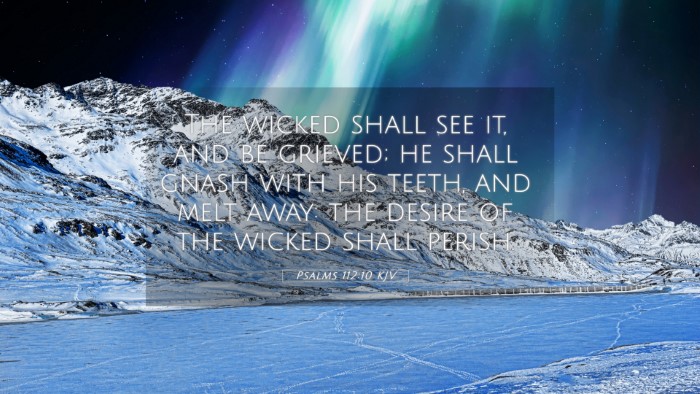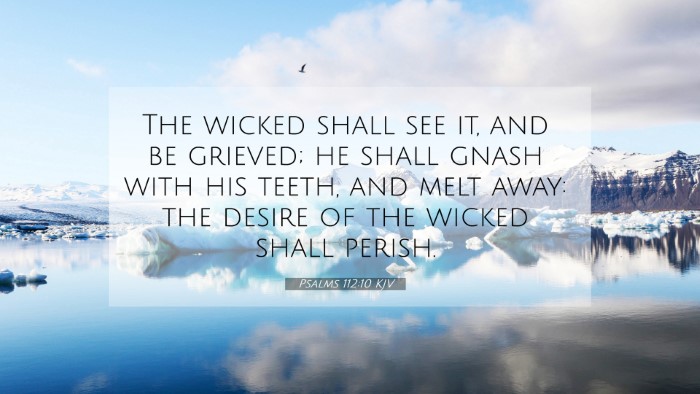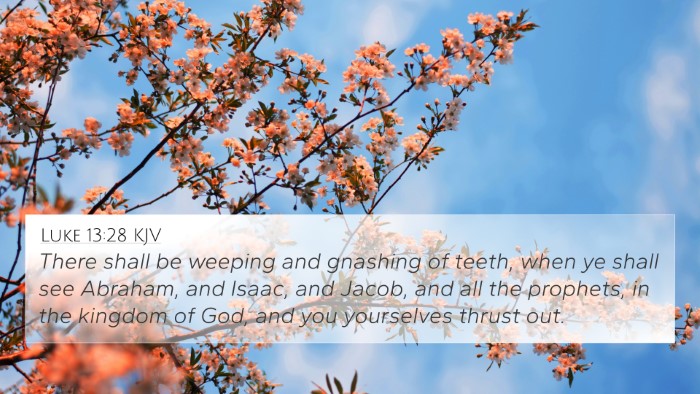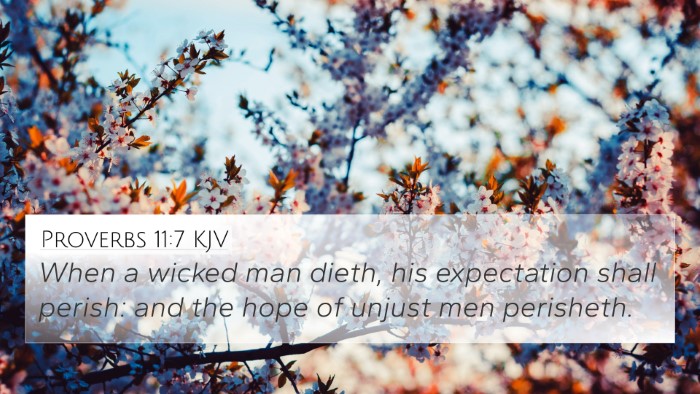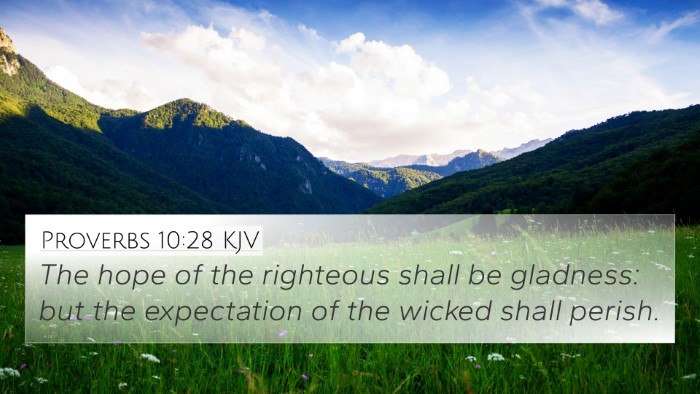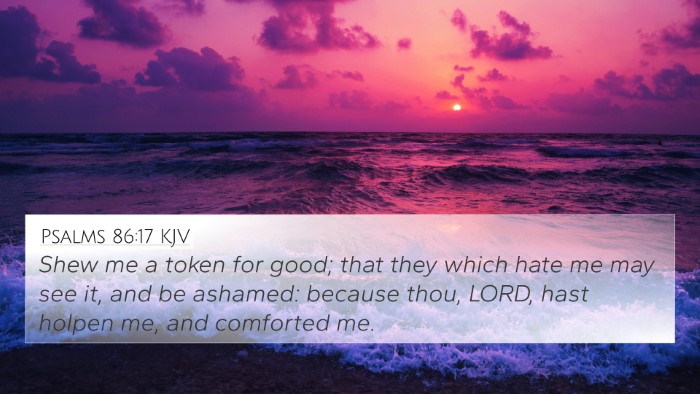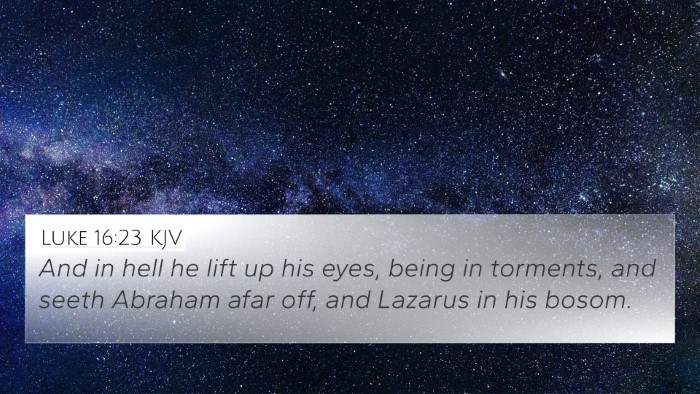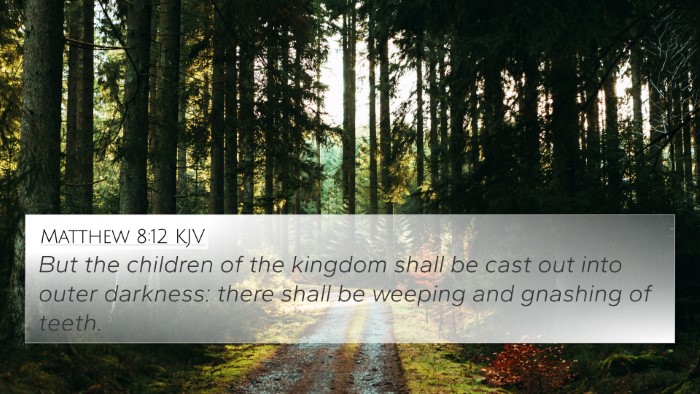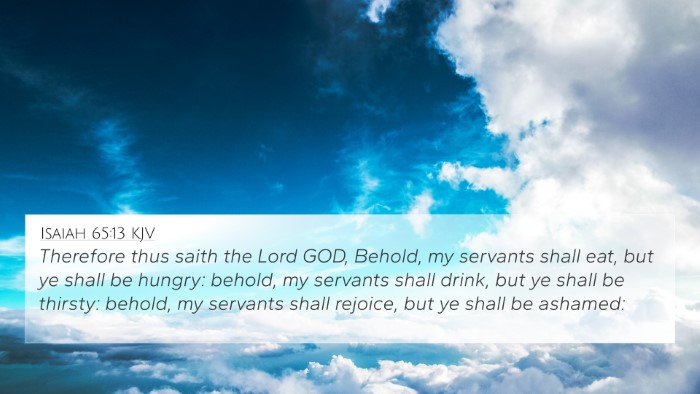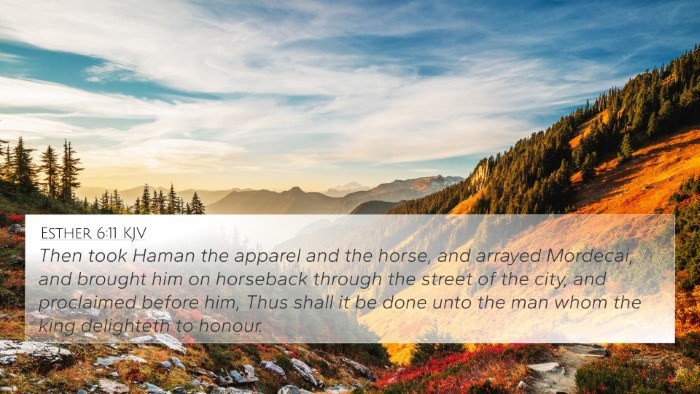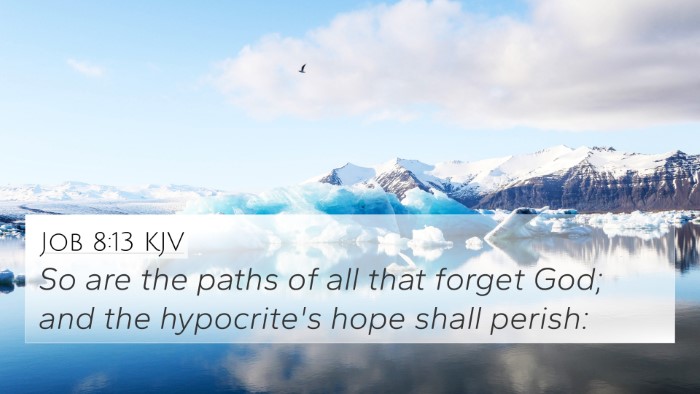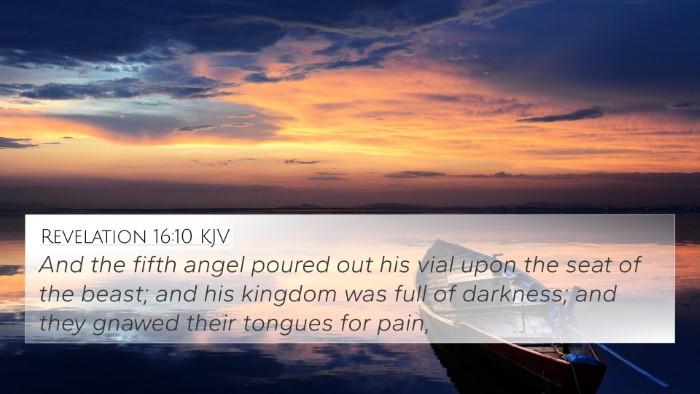Psalms 112:10 Explained
Bible Verse: Psalms 112:10
The verse reads:
"The wicked shall see it, and be grieved; he shall gnash with his teeth, and melt away: the desire of the wicked shall perish." (KJV)
Overview of Psalms 112:10
This verse highlights the ultimate fate of the wicked in contrast to the righteous. It emphasizes the emotional turmoil that the wicked experience upon witnessing the prosperity and blessings of the righteous. The psalm is part of a larger context that extols the virtue of the godly person and their steadfastness.
Commentary Insights
-
Matthew Henry's Commentary:
Henry asserts that the sight of the happiness and success of the righteous deeply troubles the wicked. His interpretation aligns with the idea that the prosperity of the godly serves as a continual reminder of the wicked's own failure and impending judgment.
-
Albert Barnes' Notes:
Barnes explains that "the wicked shall see it," referring to the observable joy and security of the righteous. He points out that this observation leads to feelings of resentment and despair among the wicked, illustrating a profound internal conflict caused by their envy.
-
Adam Clarke's Commentary:
Clarke emphasizes the word "melt away," signifying the dissolution of confidence and vigor in the wicked as they confront their failed hopes. The desire of the wicked will ultimately come to nothing, a theme echoed throughout the Psalms.
Key Themes in Psalms 112:10
This verse addresses several important theological and moral themes:
- Contrast between the Righteous and the Wicked: It highlights the separation between the fate of the godly and the ungodly.
- The Emotional Response of the Wicked: It explores the internal grief and anguish experienced by those who oppose righteousness.
- Desire and Its Consequences: The fleeting nature of the wicked's desires and how they lead to futility.
Cross References for Psalms 112:10
Understanding Psalms 112:10 can be enriched through the following cross-references:
- Proverbs 14:32 - "The wicked is driven away in his wickedness: but the righteous hath hope in his death."
- Psalm 1:6 - "For the Lord knoweth the way of the righteous: but the way of the ungodly shall perish."
- Psalm 37:10 - "For yet a little while, and the wicked shall not be: yea, thou shalt diligently consider his place, and it shall not be."
- Matthew 13:42 - "And shall cast them into the furnace of fire: there shall be wailing and gnashing of teeth."
- Luke 16:26 - "And beside all this, between us and you there is a great gulf fixed."
- Revelation 21:8 - "But the fearful, and unbelieving, and the abominable, and murderers, and whoremongers, and sorcerers, and idolaters, and all liars, shall have their part in the lake which burneth with fire and brimstone."
- Job 20:5 - "That the triumphing of the wicked is short, and the joy of the hypocrite but for a moment."
- Isaiah 54:17 - "No weapon that is formed against thee shall prosper; and every tongue that shall rise against thee in judgment thou shalt condemn."
- James 4:10 - "Humble yourselves in the sight of the Lord, and he shall lift you up."
Comparative Bible Verse Analysis
When conducting a comparative analysis between Psalms 112:10 and the referenced Scriptures, you observe consistent themes of justice and the eventual downfall of the wicked. The convergence of themes such as judgment, divine justice, and the transitory nature of evil strengthens the interpretation of this verse.
How to Use Bible Cross-References
Utilizing cross-references can enhance your understanding of Scripture significantly. Here are some tips for effective cross-referencing:
- Use a Bible Concordance: To identify connections between various verses easily.
- Highlight Thematic Connections: Recognize and group verses by similar themes for a broader understanding.
- Engage in Bible Study Groups: Discussing cross-references with others can yield new insights.
- Consistent Study Habits: Establishing a routine can help in recognizing patterns in scriptural texts.
Conclusion
Psalms 112:10 provides a sobering reminder of the fate awaiting the wicked compared to the blessings of the righteous. Its rich theological implications and linkages with various scriptures foster a deeper understanding of God's justice and mercy. For those exploring the connections between Bible verses, this study is enriched by tools like Bible concordances and cross-reference guides, which serve to illuminate the inter-Biblical dialogue and thematic biblical verse connections.

